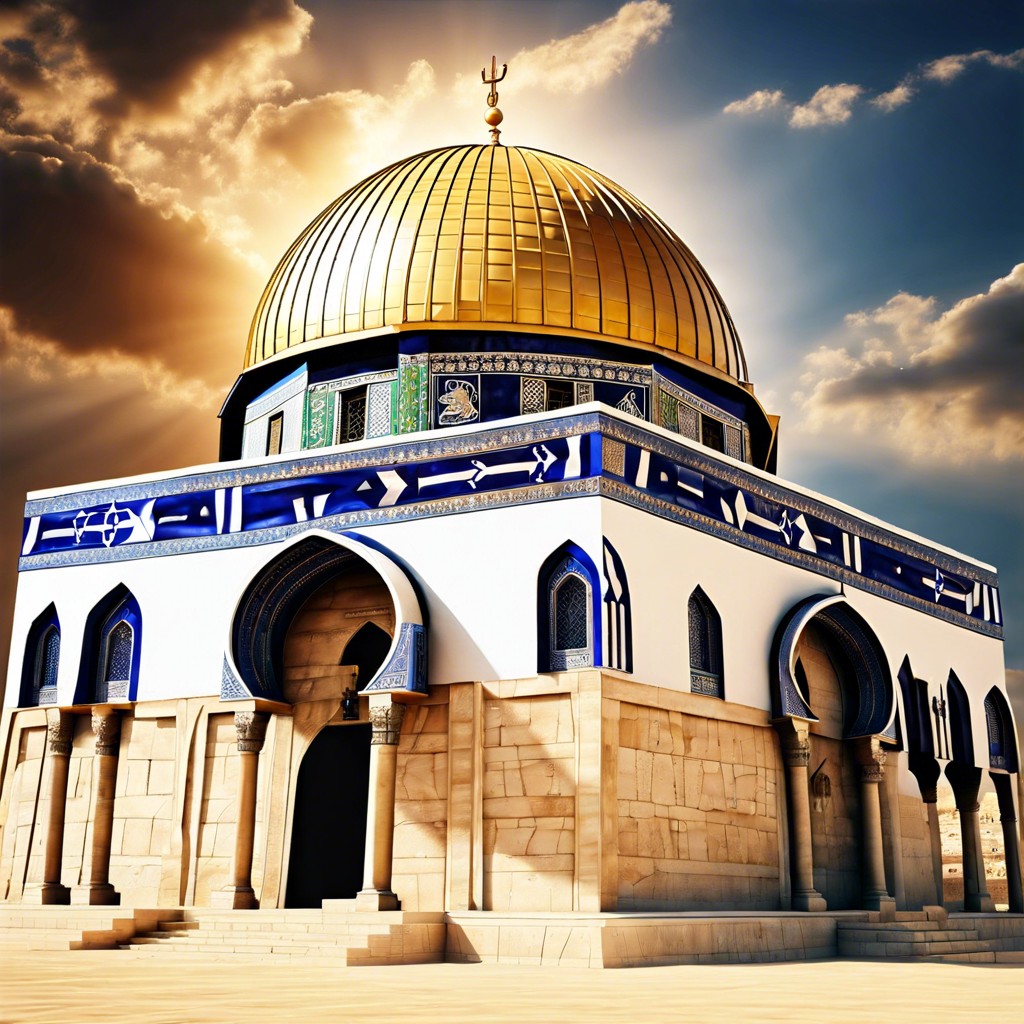Uncover the rich spiritual meaning of Israel, touching on its profound religious significance and historical resonance.
Israel holds profound spiritual significance across various dimensions. As the Promised Land in religious texts, it is a beacon of faith, historical importance, and diverse spiritual practices. Whether you’re intrigued by its role as a religious pilgrimage site or its symbolism of faith and covenant, this article delves into every aspect, providing a comprehensive exploration of Israel’s spiritual essence.
Key takeaways:
- Israel is a beacon of faith and historical importance.
- Historical significance: a hub of cultures and traditions.
- Promised Land: divine promise and prophecy fulfilled.
- Religious pilgrimage: sacred sites deepen spiritual connections.
- Symbol of faith: signifies trust and divine agreements.
Historical Significance

In ancient times, Israel was a crossroads of civilizations. It has been a central hub connecting Asia, Africa, and Europe. This unique position made it a melting pot of cultures and traditions. King David established Jerusalem as the capital, uniting the tribes of Israel and laying the foundation for a rich spiritual legacy.
The city’s history is marked by profound events, from the construction of Solomon’s Temple to the Babylonian exile. Each era contributed layers of spiritual significance, solidifying Israel as a key player in the religious narratives of Judaism, Christianity, and Islam.
Moreover, the land’s historical significance is intertwined with countless biblical narratives. Stories of patriarchs like Abraham, Isaac, and Jacob unfold here, adding deep spiritual meaning. The wanderings of Moses and the entry into the Promised Land by Joshua also underscore its importance in faith traditions.
Promised Land Concept
Central to many spiritual traditions, Israel is often viewed as the fulfillment of divine promise and prophecy. This notion is multi-faceted, reflecting ancient covenants, resilience, and redemption.
It is rooted in biblical texts, especially in the accounts of Abraham, Moses, and Joshua. Here, the land represents a divine promise given by God to the descendants of Abraham.
In Christianity, it holds significance as the land where Jesus lived and preached, marking it as a source of inspiration and spiritual connection.
In Islam, the land is revered as part of God’s gift to humanity, emphasizing peace and spiritual attainment.
This rich tapestry of meanings makes Israel more than just a geographical location; it symbolizes hope, faith, and the divine-human connection across several religious landscapes.
Religious Pilgrimage
Jerusalem, a focal point within Israel, draws countless pilgrims. For Jews, the Western Wall remains an enduring symbol of their faith. Christians flock to the Church of the Holy Sepulchre, believing it marks Jesus’ crucifixion and resurrection sites. Muslims also hold Jerusalem sacred, with the Al-Aqsa Mosque being the third holiest site in Islam.
These pilgrimage sites offer not just historical context but also spiritual depth. Pilgrims often feel a deep connection to their faith while walking these ancient streets. Many believe these journeys can bring a sense of renewal and deeper understanding of their spiritual practices.
Even beyond the well-known landmarks, smaller sacred sites pepper the landscape. From ancient synagogues to secluded monasteries, each place holds its own unique spiritual significance, enriching the experience of those who visit.
Symbol of Faith and Covenant
Israel holds a deep connection within several spiritual traditions as it signifies trust and divine agreements. For Judaism, it’s where the covenant between God and the Israelites was established, reinforcing their bond and commitment.
Christianity sees Israel as the land where Jesus walked, taught, and formed his teachings, marking it as a sacred space of faith. It’s also pivotal in fulfilling scriptural prophecies and promises.
Islam regards Jerusalem, a city within Israel, as a key spiritual site, known for the Prophet Muhammad’s night journey and ascension to heaven.
Overall, Israel stands as a testament to divine promises and religious heritage across these faiths.
Center of Diverse Spiritual Practices
In Israel, spiritual practices from various traditions converge, creating a rich tapestry of beliefs and rituals. Jewish traditions come to life in the Western Wall and synagogues that dot the landscape. Christian pilgrimages unfold in sites like the Church of the Holy Sepulchre and the Sea of Galilee. For Muslims, the Dome of the Rock and Al-Aqsa Mosque hold profound significance.
Kabbalah’s mystical insights find a home in the city of Safed, often referred to as a center for spiritual seekers. Baha’i faith is beautifully represented by the serene gardens and temples in Haifa. Additionally, Druze communities contribute unique spiritual perspectives with their own secretive but deeply-rooted traditions.
The spiritual mosaic of Israel offers diverse paths for inner exploration and faith. Exploring these traditions provides a deeper understanding of the world’s spiritual heritage.





